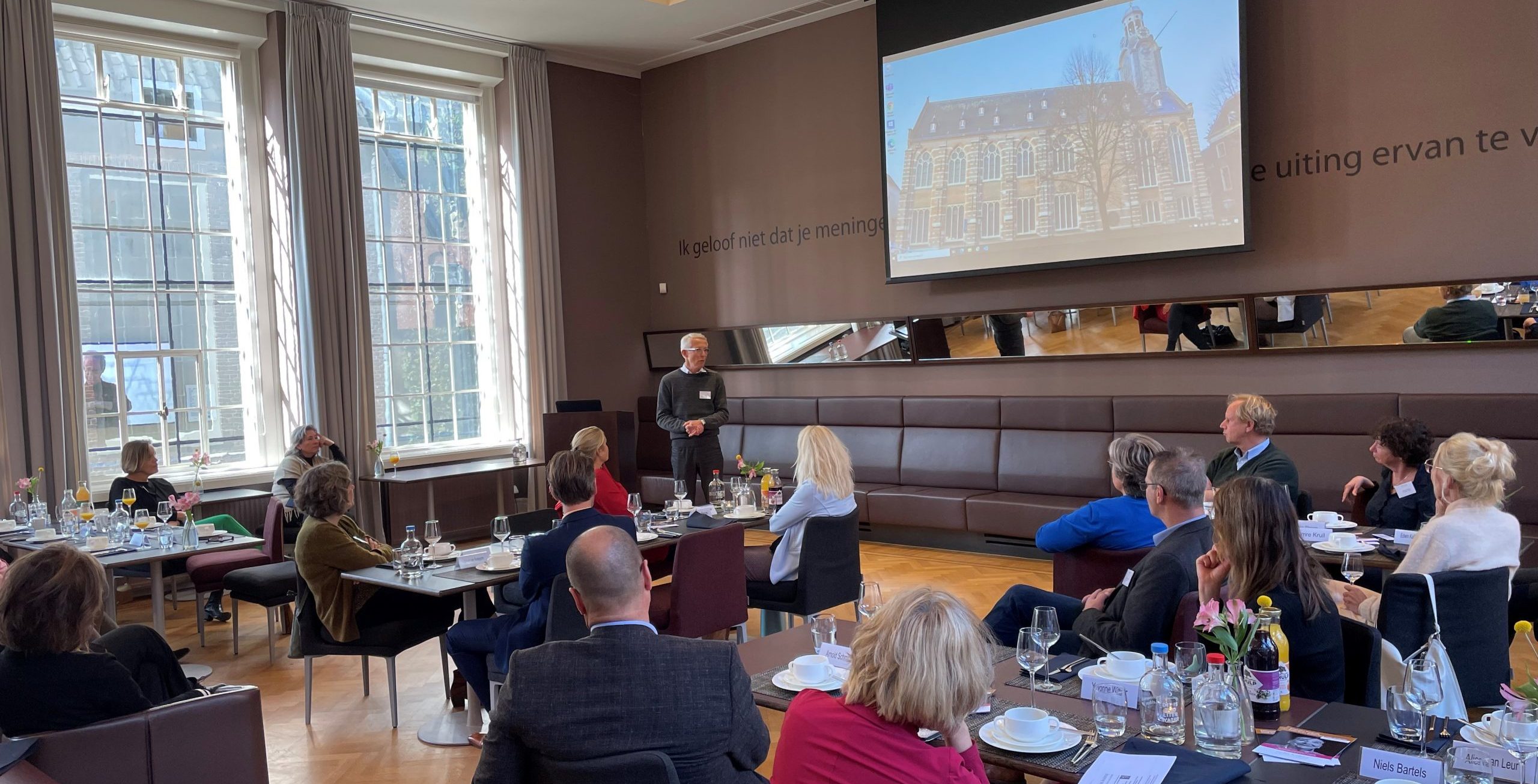How does healthcare work in Denmark, what does it cost and how has the Danish healthcare system withstood the ‘stress test’ of the COVID pandemic, compared to the Netherlands? Rudi Westendorp, professor of Geriatric Medicine at the University of Copenhagen and member of the Danish Outbreak Management Team, discussed this with the students and alumni of our executive course ‘Good life, good care for the elderly’ on 15 October 2021.
About thirty administrators and policy makers from (elderly) care were gathered in the Faculty Club of Leiden University. The annual study trip to Scandinavia could not take place due to the corona measures, so Professor Westendorp was asked to place Dutch healthcare in an international perspective. The former director of Leyden Academy, who has been working and living in Copenhagen since 2015, made it immediately clear that Danish care is organized very efficiently: he showed his personal pass, were caregivers provide all necessary information and which gives him access to care everywhere.
Make sure to dream
The Danish healthcare system is equally efficient in its management. The country is divided into five regions with one director above them, with the power to persevere. There is one centrally controlled GGD. Long-term care is provided by the 96 municipalities, which are given a lot of freedom to fulfil their task transparently and following the quality requirements. Very logical, Westendorp thinks, also for the Netherlands: “In Rotterdam you need something different than in East Groningen”. Healthcare costs are lower in Denmark (approximately 12% of GDP compared to more than 14% in the Netherlands) and the population benefits: Danes give their lives an average of 8 and this rating increases as people get older. Westendorp: “This is actually the care we dream of in the Netherlands… but which we will never get.”
Corona as a stress test
You can also measure the quality of a care system by the extent to which it is shock-resistant. Westendorp calls the COVID pandemic a ‘stress test’. And here too, according to him, Denmark performs better. The ICs coped well with the rush and there is no delayed care. Nor has there been any excess mortality in Denmark; Neighbouring Norway even records under-mortality, because influenza barely got a foothold there due to the corona measures. How is it that COVID in the Netherlands has claimed so many more victims among the older population? Food for thought, according to Westendorp.
A deal is a deal
Various causes were suggested from the discussions at the tables. Are the Danes healthier than us? No, says Westendorp, “they smoke and drink like heretics”. Is it because the country is less populated? Nonsense: one in three Danes lives in Copenhagen, an urban area with 2 million people. The professor eventually relieved the audience of the tension: it is mainly due to the discipline of sticking to measures. Don’t be under any illusions, there was a lot of heated debate in Denmark too. But if 80% of Danes agree on the right way, then that’s the decision, and the other 20% also agree. Westendorp: “The Dutch often think: ‘I’ll decide for myself’. Danes keep to the agreements, and people won’t deviate from this. So there are no implementation problems.”
We before me
This is also the main reason for Westendorp’s conclusion that we will never receive the “dreamed” Danish care in the Netherlands. A deal is a deal and we before me, that is simply ingrained in the Danish national character and not in ours. Danes wore face masks en masse because you don’t have to think about infecting someone else. The Dutch wore the masks reluctantly, mainly to protect themselves. It elicits Westendorp’s statement that “every country gets the COVID epidemic as an expression of the culture that prevails there”. Yet there is hope, because, according to the professor, both countries share the collective will to properly arrange health care and to help each other in times of disaster and misery. “We essentially want the same thing, only we have lost our way in the implementation in the Netherlands. Why the market forces and fragmentation, why don’t we organize it as a public matter?” Westendorp wonders. To end on a positive note: “We can rebuild this and hold government accountable from the bottom up.”



